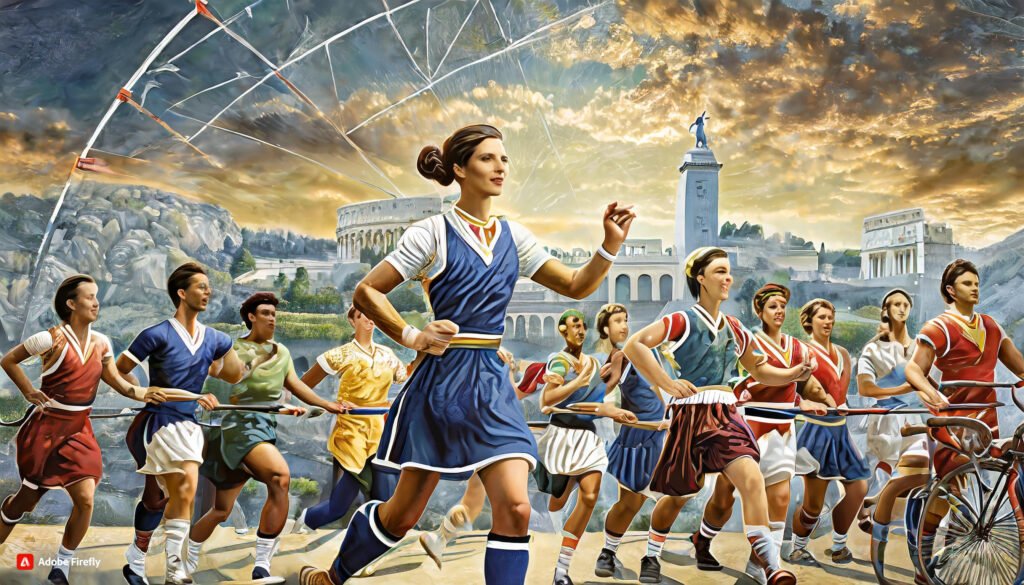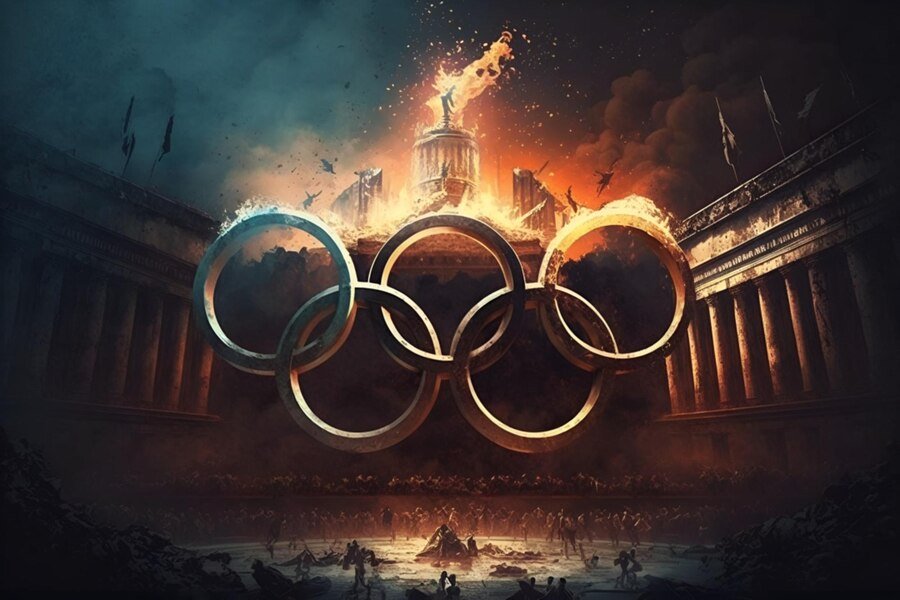Introduction
The Olympic Games, a celebration of athletic excellence and global harmony, with a long and illustrious past that spans more than two thousand years. Originating in ancient Greece, these institutions have undergone significant transformations throughout time, adjusting to the evolving world while upholding their fundamental principles of excellence, camaraderie, and reverence.

Blog Content
The Ancient Beginnings:
The first Olympic Games took place in 776 BC in Olympia, Greece. These games were a component of a religious celebration commemorating Zeus, the sovereign deity of the Greek pantheon. Male athletes participated in a range of activities, including as footraces, long jump, shot put, javelin, boxing, and equestrian competitions. The reward bestowed to the winners was a humble olive branch, however the prestige and honor associated with it were immeasurable.
The Olympic Games Through the Ages:
The ancient Olympics thrived until AD 393 when they were terminated by the Roman emperor Theodosius I, who considered them to be a heathen ritual. The Olympics remained dormant for more than 1500 years until they were revived in the late 19th century.
The Revival of the Olympics
Baron Pierre de Coubertin, a French educator and historian, established the International Olympic Committee (IOC) in 1894, which subsequently resulted in the first modern Olympics taking place in Athens in 1896. This significant occurrence signified the commencement of the Olympic Games as an international event, with the participation of 14 countries and 241 competitors participating in 43 different events.
The Modern Era
The Olympic Games have been held every four years from the 20th century until the 21st century. The Winter Olympics were introduced in 1924, followed by the Paralympics in 1960 and the Youth Olympics in 2010. Every edition of the Games has seen an increase in the variety of nations taking part and the incorporation of women’s categories.
Significant Milestones
- 1936 Berlin Games: Notable for the political strife in Nazi Germany and the exceptional achievements of African-American athlete Jesse Owens.
- 1960 Rome Games: The first games to be extensively televised, resulting in a substantial boost to the event’s worldwide impact.
- 1980 and 1984 Boycotts: The Cold War resulted in boycotts organised by the United States and the Soviet Union, which were indicative of the prevailing political environments at that period.
- 1992 Barcelona Games: For the first time, professional athletes were granted permission to participate, drawing in renowned sports figures from across the world.
The Olympic Legacy:
Currently, the Olympic Games serve as more than simply a showcase of competitive sports; they also represent a significant symbol of worldwide harmony and the sharing of other cultures. They foster tranquilly and collaboration among countries while commemorating the capacity and accomplishments of humanity.
Conclusion:
Spanning from the historic city of Olympia to modern-day worldwide stadiums, the Olympic Games have stood the test of time as a symbol of human resilience and friendship. As we anticipate next Games, the enduring impact of the Olympics is expected to continue developing, including new sports, technology, and obstacles.
Cargo industry welcome foreign investment



[…] of 10 Famous Olympic Athletes Who Made History The Wonders of Artificial Intelligence The History of the Olympic Games How to Earn Money Online: A Comprehensive Guide Top 5 Telegram Bots: Tap to […]